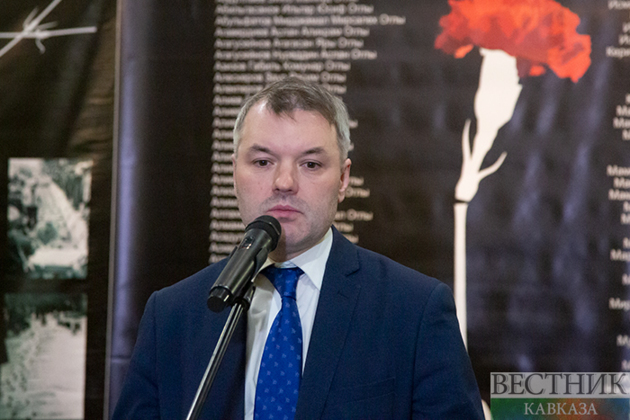A transparent investigation into all circumstances of the Yekaterinburg incident, where brothers Ziyaddin and Guseyn Safarov died during detention, is critically important for normalizing Russian-Azerbaijani relations, Director of the Institute for Contemporary State Development Dmitry Solonnikov told Vestnik Kavkaza.
Resolving the Crisis?
"First and foremost, it is crucial for Russia to conduct a thorough investigation into what actually happened in Yekaterinburg - not to hush up the situation, but openly present the real facts. We need not assumptions like 'maybe it happened this way,' but objective data proved by documents, including confirmation that those detained were members of a criminal group," Solonnikov said.
"Unfortunately, the detention wasn't recorded on video. For instance, the FSB just recently detained individuals suspected of corruption in St. Petersburg, including MPs and district heads, but everything was documented: there's video, there are photos, and it's clear that no violence or harm was inflicted. If such documentation existed for Yekaterinburg, that would be useful. If it does exist, it needs to be found and presented. And if not, then we need to find out why video wasn't recorded and how the detention actually proceeded," Dmitry Solonnikov pointed out.
"The most important thing is not to try to hide anything, but to present the materials as publicly as possible. This is vital for both sides. If the detained individuals are unquestionably at fault, Azerbaijan will acknowledge it. If violations by those conducting the detention are uncovered, then Russia needs to acknowledge that. This is an extremely serious situation that must be openly examined here, on our side, while expecting that the same will be done by Azerbaijan, with documents presented there as well," the political scientist emphasized.
"It is precisely maximum publicity, openness, and the involvement of each side in the other's investigation that will lead to de-escalating the situation. Understanding the incident and resolving everything together. Then, yes, further constructive interaction can be built," Dmitry Solonnikov stated.
Moscow's three vectors
The Director of the Institute for Contemporary State Development warned that three divergent approaches to the prospects of Russian-Azerbaijani alliance will now be active within the Russian political space.
"The first vector is work to return relations from the current confrontation back to the track of pragmatic, constructive cooperation that existed until the end of 2024 and was planned for spring 2025. Proponents of this vector will strive to restore good relations and preserve the economic projects that are undoubtedly beneficial for both Russia and Azerbaijan," he explained.
"The second vector is an attempt to cover up the situation, pretend nothing happened, avoid investigating the Yekaterinburg incident, and try to ignore the investigation Azerbaijan will conduct regarding the bodies brought to Baku," Dmitry Solonnikov continued.
"The third vector is the activation of political groups bent on confrontation with Azerbaijan. They will try to escalate the scandal, either in the interests of Armenia or certain factions within Moscow, aiming to completely sever all Russia-Azerbaijan contacts - even halting the North-South project and ending the good personal relations between Presidents Vladimir Putin and Ilham Aliyev. Such people exist, and they will try to destroy everything built by Vladimir Putin in Russian-Azerbaijani relations," the political scientist noted.
"A struggle will now unfold between these three vectors, because they have conflicting interests and different visions for the future of Russian policy in the Southern Caucasus. Moscow is interested in preserving relations with Baku, but there are political forces working against this," Dmitry Solonnikov concluded.






